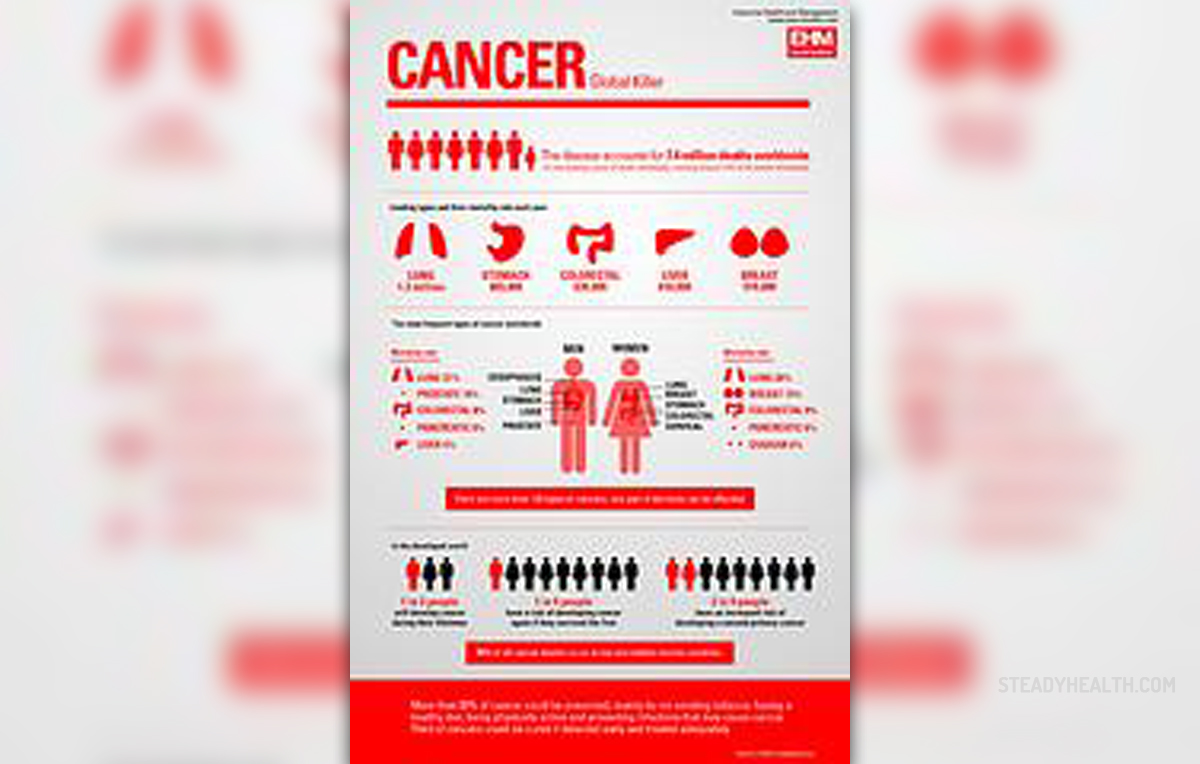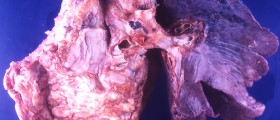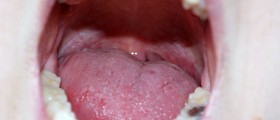
There are two major classifications of esophageal cancer. The first one is called the squamous cell carcinoma, initially appearing in the flat lining of the esophagus, usually located in the middle or the upper part of this organ. The second type of this cancer is adenocarcinoma, appearing in the glandular, secretory cells which are commonly in charge of the mucous production processes, located in the close proximity to the stomach.
Esophageal Cancer IndicationOne of the most common signs of this cancer are swallowing problems, commonly related to food digestion and eating. The main reason behind this issue is the tumor growing inside the esophagus, blocking the food passageways, leading to discomfort, pain or plain sensation of swallowing difficulty. Even though eating slowly can decrease the complications, it is best not to ignore this sign but to seek medical assistance.
Due to the difficulty related to consuming food, rapid weight loss may occur in esophageal cancer patients, usually before the condition is even diagnosed. This also results in a great loss of energy and strength. In order to combat this, you are advised to eat foods rich in calories, but those types which can be swallowed easily, like liquid nutritional supplements.Yet, before any symptoms even appear, it is best to undergo regular screening, making sure that you are safe and healthy or discovering any forms of cancer while these are still in their early stage. Even though health experts and scientists are giving their best to find out whether there are certain factors which make some people more prone to esophageal cancer than others, the answer for this question is yet to be found. Thus, screening is the best form of protecting yourself against this disease.
As far as the tests themselves are concerned, esophagoscopy, being a procedure involving the observation of the esophageal area in search for any anomalies, is one of the most commonly used ones. In order to obtain the visual information on your esophageal health, the doctor uses a special, tube-like camera which records the inside of your esophagus and takes photos of suspicious tissue.Biopsy, being a removal of a small portion of tissue in order for it to be tested for the presence of cancer cells is also a possible procedure you might undergo. Biopsy can reveal conditions like Barret's esophagus early, increasing chances of early detection and treatment of esophageal cancer.
Brush or balloon cytoscopy may also be used as alternative methods for examining the biopsy tissue. Furthermore, chromoendoscopy may be a great tool for revealing Barret's esophagus too, as well as fluorescence spectroscopy, using light and special chemicals in order to show the presence of cancerous tissue inside the esophageal area.Lifestyle with Esophageal Cancer
Living with this cancer can be a life which is more of a battle. Namely, this condition is a serious one and should be considered as such. Nevertheless, some lifestyle steps you can take may increase your chances of recovering from this condition or managing its symptoms with more ease.The pain will be present. However, you can deal with it through therapy and treatment. Chemotherapy, radiation therapy and surgery, all are ways through which the malignant tissue can be removed. Bear in mind that all methods which can reduce the size of the tumor are proper and recommended ones, regardless of the pain and discomfort these might lead to.
Unfortunately, if the cancer has reached metastasis, the treatment may not be possible. In this stage, you are advised to do your best in order to help yourself live with the condition as free of its symptoms as possible. If you have not reached this stage, do your own research and keep in mind that this might be a possible scenario in your life too, knowing what to expect and how to deal with it.Naturally, the presence of esophageal cancer in your life can lead to a great emotional impact. Thus, do not be afraid to share your concerns with others, asking for support or advice. Joining a support group can also be a good step since it will grant you access to various information related to this condition as well as the emotional support you need. Of course, your family and friends should be included in the support process too.
According to the research carried out in England and Wales, 8% of all esophageal cancer patients manage to survive over a course of a single year after the diagnosis. However, there has been a 1% increase over the recent years, with women more commonly managing to survive than men.The main problem related to esophageal cancer is the presence of other severe diseases, co-existing with it, decreasing one's chances of survival greatly.
All in all, living with esophageal cancer can present a constant struggle, but it can also be managed through effort and will-power, along with the support of your medical health providers, family and friends. Yet, it is best to prevent this condition through regular screening and early detection.
















Your thoughts on this
Loading...